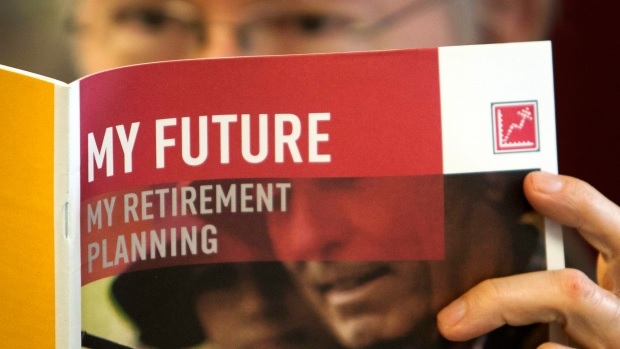The last group of the baby boom generation is fast approaching retirement. The group, now aged over 50, seem to generally have the same financial concern which is, have they saved enough money? Most Canadians it seems feel they’re hundreds of thousands of dollars short.
A new survey by Ipsos research (tables in links below) for the Royal Bank of Canada is called 2019 Retirement Myths and Realities.
The survey contacted 2,000 pre-retirees in Canada aged 50 and over during April of this year.
In answer to the question, it seems there is a wide gap between two groups, those with investable assets of $100,000 or more, and those with assets, of $100,000 or less. Investable assets include cash, bank funds, retirement savings funds (registered retirement savings plan-RRSP in Canada), tax-free savings accounts (TFSA) etc.
The poll found those with $100,000 or more felt they needed savings of almost $950,000, but were over $275,000 short of that goal. The other group with $100,000 or less, felt they needed on average $575,000, but only had $75,000, and so were well short of their goal.
In a press release, Rick Lowes, Vice-President, Retirement Strategy, RBC said, “The best approach is to start with expectations including: the lifestyle you hope to lead in retirement, retirement income options, and then build a plan to get you there.”
In addition, the survey found that on average across Canada, some 19% said they expected to carry debt into retirement, something generally counselled strongly against. That number may be low however compared to surveys of some years ago. Statistics Canada in 2012 found that fully two thirds of pre-retirees aged 55 and older had debt while a survey by the Canadian Imperial Bank of Commerce (CIBC) at the time found 59 percent of retirees had some kind of debt.
The report noted that 78 per cent said they had a retirement plan, (although 28 per cent said it was in their head), while 22 per cent said they had no financial plan.

The RBC report said almost a quarter of Canadians age 50 and over (22%) had no financial plan for retirement, and about the same number said the plan was in their head ( Ryan Remiorz-CP)
The typical theory is that you would need about 70% of your working income in retirement although A Sun Life survey in 2017 found retirees on average were living on 62 per cent of the income during working years. Advisors also note that people should also be aware of inflation on any lump sum saving.
The RBC survey found that boomers yet to retire said they were considering several options including
- Downsizing or moving (52% of respondents)
- Working in retirement (41%)
- Borrowing against home equity (25%)
- Relying on an inheritance (21%)
- Hoping to win the lottery (3%)
Lowes cautions, “No-one should be relying on an inheritance or a lottery win. We also don’t want anyone feeling discouraged by unrealistic savings goals or thinking they don’t have enough time. Concerns like these can be overcome by taking control of your finances”, adding however, “There could be some tough choices ahead”.
About nine per cent of respondents said they didn’t ever plan to retire.
Additional information-sources
- IPSOS research-survey questions/tables
- CBC: T McFeat: Jan 4/13: Canadians taking debt into retirement
- Business Insider: L Lyons-Cole: Apr 10/19: Here’s how much money you’ll need o retire by age 40 (+calculator)
- Maple Money: T Drake: May 24/19: How much do I need to retire
- Globe and Mail: I McGugan: Jul 16/19: Three common mistakes retirees make when drawing down assets
- Benefits Canada: Jul 19/19: Employees want help with retirement planning
- Sun Life: K Press: Feb 17/16: Saving for retirement
- Sun Life: Jun 13/17: how to ensure you have enough to retire







For reasons beyond our control, and for an undetermined period of time, our comment section is now closed. However, our social networks remain open to your contributions.